
You’re speed-dating. A room full of interesting and surprisingly attractive looking singletons, not a single desperado, but of course all of us are desperadoes in the most existentially raw way possible, moving conveyor-belt like around tables, three-minute conversations apiece. And out of the twenty brief conversations, at least five or six zing with promise and potential; the bell that signals closure for each of these is painful. You wrench yourself away from each other. Well, you wrench yourself away. One can never tell what level of wrench is going on for another person. At the end of the event, there are no options for further conversation. Everyone scuttles off, slightly embarrassed, ashamed even, at having opened themselves to intimacy for three whole minutes, having exposed their need repetitively to so many.
I have been trying to find a metaphor that sums up for me how I feel about Flash fiction, and this is probably as close as I’ll get. The biggest problem I think I have with the form is that, like speed-dating, it invites connection, intimacy, and promise in a very swift and immediate way, but almost always leaves this reader feeling unsatisfied, hankering, and thus either disgruntled, kvetchy, or glum. For this reason, until now, I have largely stayed away from Flash fiction, AKA micro-fiction, sudden-fiction, postcard-fiction, or simply Flash as I shall be calling it. I have stayed away because I know it’s not good for me.
But Flash thinks it is good for me, a tonic even. These are the latest claims for Flash from an 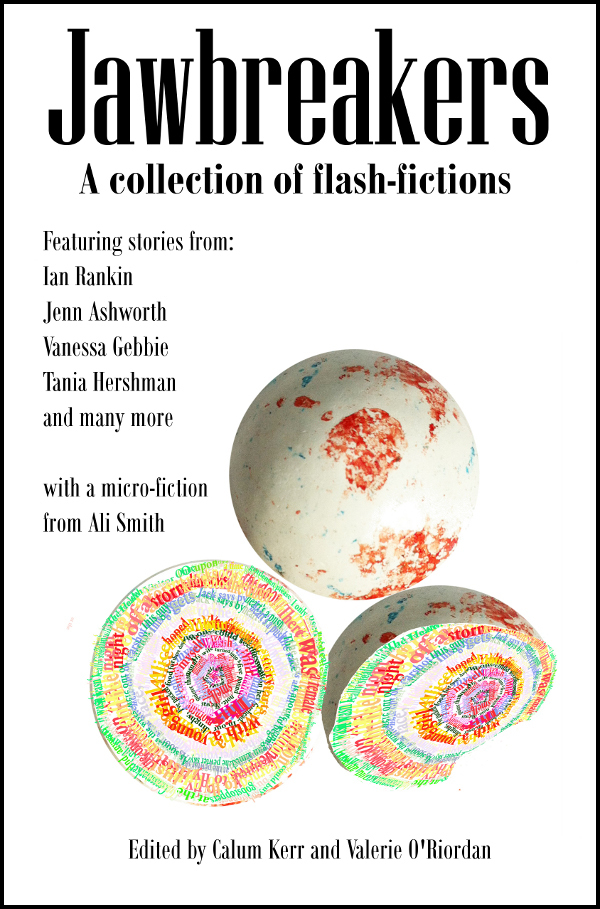 anthology published to celebrate the first National Flash Fiction Day on May 16th: “Flash is not only easily and quickly digestible, delivering the goods in 500 words or fewer”, but it also “matches” (yes, matches) “the power and impact of considerably longer works.” My favourite claim for Flash is that its writers have crafted such “perfect, miniature worlds” that “their language, their characters and their startling imaginations bear the same weight as any thousand-page doorstopper.”
anthology published to celebrate the first National Flash Fiction Day on May 16th: “Flash is not only easily and quickly digestible, delivering the goods in 500 words or fewer”, but it also “matches” (yes, matches) “the power and impact of considerably longer works.” My favourite claim for Flash is that its writers have crafted such “perfect, miniature worlds” that “their language, their characters and their startling imaginations bear the same weight as any thousand-page doorstopper.”
Putting aside my playing-to-the-stalls Grump Act, and the almost necessary marketing bombast that is required in our hype-heavy age to publicise anything, let’s get straight to the nitty-gritty of my mixed-metaphor beef with flash. To do this, I’d like to show you a piece of Flash that I think, as writing, is very, very good (my problem is not with the writers of Flash, but with Flash itself).
Here is ‘Bonding’ by David Gaffney, which can be found in the Jawbreakers anthology:
As soon as the wives were out of earshot Gareth leaned over to Howard and said in a conspiratorial tone, “Hey, Howard, we have something in common.”
Howard laughed, awkwardly. He’d invited Gareth out because he’d been advised that if he became more socially engaged with his subordinates they would see him as a human being and not just a blob on an organogram.
“Oh yes?”
“Yes.” Gareth leaned forward again and said in a hissy high voice he thought no one could hear, “We both have fat wives.”
He grinned. “Eh? Eh? They are both very fat, and we are both slim. It’s something we should talk about. A bond.”
Over Gareth’s shoulder Howard spotted the wives returning from the toilets and he noticed Belinda smiling at a waiter. Her face was so beautiful and vibrant it broke his heart sometimes what people thought, what people said.
I’m gripped by the dynamics of this piece: the chronicling of bourgeois anxieties feels almost Updikean, circa 1968, but this is an Updike who’s also familiar with Neil Labute or Todd Solondz’s acidic fin de siècle upchucks, and of course The Office. There are some fantastic descriptive nuggets here: Gareth’s “hissy high voice” graceless and gauche in voicing these corporeal “facts”; Howard as ideographic blob, Belinda the real thing. Great stuff.
But.
I am not a creative writing teacher. If I were, and were the class any other than a Flash Fiction one (in which case, full marks), would I (would you?) not write on this piece submitted for your readerly care, attention, and bonding: “Powerful opening. But I think you may have forgotten to include the rest of the story?”
Is there more after this? I think there should be.
So I phoned up Calum Kerr, who is editor and creator of National Flash Fiction Day and grizzled to him about Flash. Are not these 148 words the literary equivalent of brandishing one’s inkhorn flair through an open mac (or Mac)? Damien Hirst writing: great ideas, but bearing no mark of the effort it takes to craft an architecturally cohesive piece of fiction?
He reminded me that the raison-de-etre behind Flash, as opposed say to short short stories was that ideally they are to be created in one sitting, that’s to say in a flash (aha!): the spontaneous bop prosody of Beat-Aesthetics, first-thought-best-thought and all that, updated from its 120-foot roll of teletype paper to the never-ending scroll of Microsoft Word.
“But in that final line you get 20 years of marriage,” Kerr argues. “It brings in all that back-story. You as the reader have to meet it halfway though. It’s that Roland Barthe distinction between “readerly” and “writerly” text. Readerly text being your standard 19th century novel, five hundred pages, not a single detail or moment not filled in for the reader. Writerly texts is where the reader is having to do the writing. Flash Fiction says “here is the top corner piece of the jigsaw, extrapolate the jigsaw from this.”
So like a poem then? If the short story lies on a continuum between poetry and longer fiction, able to hold within it more concentrated “flashes” of the poetic than say a novel, but equally indebted to developing complex and intricately satisfying narratives and inner worlds, where on this continuum sits Flash?
“I think what I try and boil it down to is this,” Calum goes on to explain. “In Flash you have language used as it is in poetry, but to drive a narrative rather than an image. A story goes from A to B, whereas a poem tends to stop at A and have a really good look at it.”
Maybe the problem for me is that I enjoy the language of some Flash pieces, but don’t feel the narrative is being driven far enough.
The form often produces a very cursory development of a writing prompt idea, beloved of workshops and Twitter: first day in the tattoo parlour; conversation with a sword-swallower; lots of Lorrie-Mooresque 2nd person “How To Talk To One’s X or Y” pieces. They’re a bit like open-ended “jokes”, but lacking punchlines: St Peter as a Geordie; a Flash imagining the (brief) consequences of one’s spouse turning into a five pound note; your mother-in-law’s head in a jar.
It’s often very High Concept writing, the metaphorical turned literal, but not necessarily literary. Although Flash says: if Kafka, Borges, Calvino, Carter, Marquez, Rushdie, Winterson can do it, why not us?
Kafka’s Metamorphosis could certainly be “contained”, abridged, strait-jacketed as Flash without losing any of its overt content. But it’s not Flash, it’s 22,000 words long, and for a reason. The horror, self-disgust, anguish, and claustrophobia cannot be replicated in 220 words. It just can not. Unless you count John Crace’s “Digested Reads” as Flash (ironically, this is exactly how Ian Rankin’s Rebus-Flash comes across in Jawbreakers) I can’t see anyone arguing for a 220 word Metamorphosis.
A Potted History of the F-Word
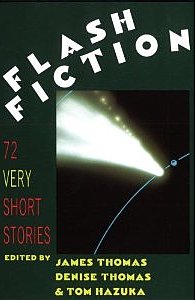 So why has Flash in the last two decades prospered to the extent it has? Here’s my own personal, and thus highly idiosyncratic and potentially jaundiced theory of why Flash is so pervasive.
So why has Flash in the last two decades prospered to the extent it has? Here’s my own personal, and thus highly idiosyncratic and potentially jaundiced theory of why Flash is so pervasive.
We start with the Annus Mirabilis of Flash. Flash began in 1986 with the publication of Shapard and Thomas’s Sudden Fiction and the Housemartins’ first LP. Most of the stories in this volume are not Flash-sized, some being as long as four pages. Six years later, Tom Hazuka and the Thomases (Denise and James) came up with another name, Flash Fiction, and put it on the cover of their anthology of slightly shorter pieces. It then took about ten years for Flash to become what it is today. The next publishing marker, was Dan Rhodes’ Anthropology (2000): 101 stories, 101 words in each. Neat, huh?
At this point, lots of people realised that they too might write not one but hundreds of stories, and 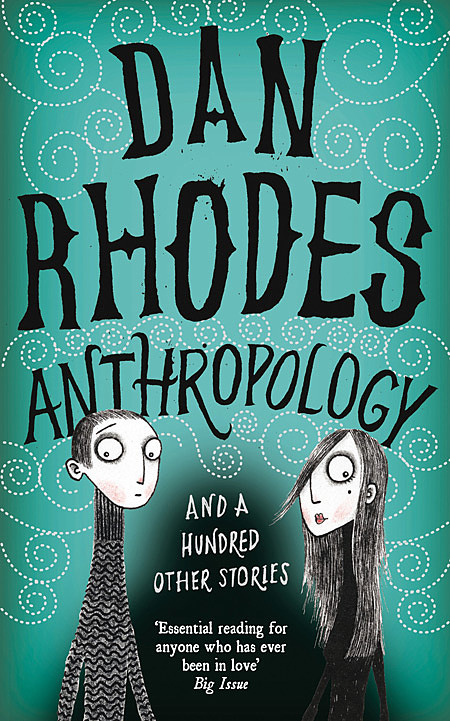 maybe even get them published in a best-selling book. This hope proved to be false; alas, only Eagleman’s Sum has sold in the number of Rhodes’ Anthropology, and possibly more. Still, Rhodes is to Flash what the New York Dolls were to punk, IMHO.
maybe even get them published in a best-selling book. This hope proved to be false; alas, only Eagleman’s Sum has sold in the number of Rhodes’ Anthropology, and possibly more. Still, Rhodes is to Flash what the New York Dolls were to punk, IMHO.
In the early noughties things start hotting up for Flash. The internet burgeoned, and along with it much of the social media and self-publishing platforms that we use today. Along with this, our screen-attention shrank. These days a blog post won’t be consumed beyond 200 words. Already 1500 words into this piece, I doubt anyone but the most ardent Flash devotees and agnostics like me are still reading, but let’s push on.
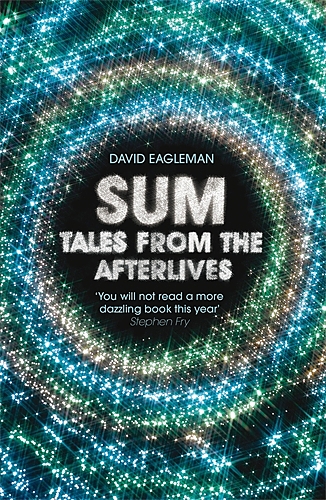 More and more people realise that they can have their own web-based literary magazines without having to be Granta or The Gettysburg Review. Flash, like everything else, is fed by this proliferation of content-hungry, virtual publishing platforms. And it flowers because Flash is ultimately good for writers, good for those running literary competitions, and for online magazine editors.
More and more people realise that they can have their own web-based literary magazines without having to be Granta or The Gettysburg Review. Flash, like everything else, is fed by this proliferation of content-hungry, virtual publishing platforms. And it flowers because Flash is ultimately good for writers, good for those running literary competitions, and for online magazine editors.
For writers: it’s fun, and a doddle compared to longer forms. A recent piece of Flash Fiction I wrote took an hour to pen, and was polished up in a few days. I then sat on it for a week, followed this up by a bit more editing, and voila! A 2,000-word short story might take me a month or six, or more. Constantly writing, re-writing, and often wanting to stab my eyes out with sharpened pencils. You’re quite welcome to say that my piece of Flash is Floosh, and really not as good as your piece of Flash – which you laboured over like some boil-ridden Flaubert. But I’m not sure Flash does give one boils. And isn’t the whole point about writing? That it should? That it hurts? You want to write and enjoy yourself, how very dare you!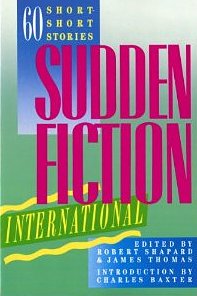
For webzines and literary competitions, Flash is a gift. Lots of writers submitting, almost no time needed for perusal and assessment. Loads of work published. Good feeling all round followed by excited Facebook and Twitter shares. You get publicity for your website, everyone wins.
So Flash is good for me (a writer), and Flash is good for my publishers (mainly non-paying web platforms). But is Flash good for us (readers)?
“Good” Flash versus Floosh
At this point, I’d like to completely contradict myself and say that yes, some Flash is good for us. There are two types of Flash which stand as exceptions to my bah-Flash whinging.
1) Prose-poem flash: the language in these pieces is so dense and allusive that one often needs to (and indeed wants to) re-read the whole thing as soon as you’ve come to the last line.
2) Uncanny Flash: this is Flash that leaves you feeling destabilised and enchanted. You wonder if someone has spiked your tea with Rohypnol or if everything tangible and intangible is but a dream. This can sometimes happen in Flash that reads like a fairy tale, the Flash equivalent say of Miroslav Holub’s masterful poem about being lost ‘Brief Reflection on Maps’.
Here’s a writer who frequently hits both buttons at once: Tania Hershman, with a piece from her latest collection My Mother Was An Upright Piano.
Tiny Red Heart
When it sings he sings with it, him and the bird. It sings in its metal cage, with its metal wings and small metal beak, and its heart, which is part of his heart, a tiny lump that he removed from his and placed inside the bird’s metal ribcage. The tiny red heart beats inside the bird and he can see it, as he stands by the cage. And when the bird sings, it fills him with joy, his bird, with his heart, his creation. And when he thinks of the day that one of them will stop singing, one of the hearts, his or the tiny bird’s heart, will stop, his chest is filled with tears, sticky hot tears, that burn through him. He puts his face to the metal cage and he tells the bird, his bird, of his love and his happiness. And as the bird, the little metal bird, sings to him, he looks out of the window and he knows that one day he will have to let it go.
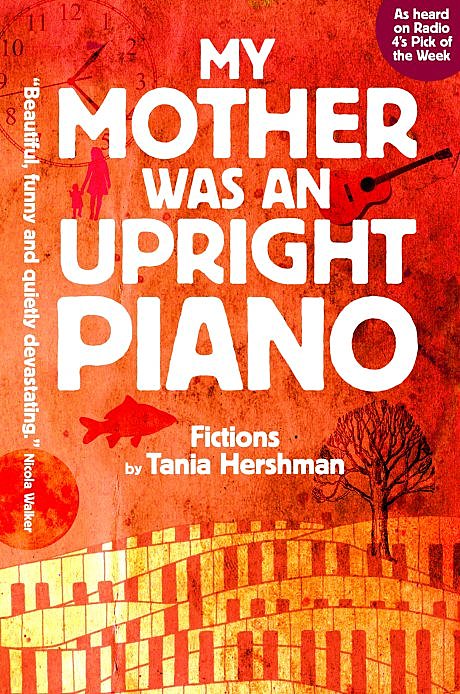 I am still reading and re-reading this. Call it what you like, I would still prefer to call it a poem. It is a poem that encapsulates for me the transcendent mechanics of creative expression. To sing that song of ourselves (“For every atom belonging to me as good belongs to you”) we must perforce submit to some strictures of form, the steely practice of cultivation and restraint. And yet at the same time, this rigorous operation of scalpel-notions and sentence-sutures also requires us at all times to be in constant contact with something soft, and squidgy inside us, something uncomfortably emotional.
I am still reading and re-reading this. Call it what you like, I would still prefer to call it a poem. It is a poem that encapsulates for me the transcendent mechanics of creative expression. To sing that song of ourselves (“For every atom belonging to me as good belongs to you”) we must perforce submit to some strictures of form, the steely practice of cultivation and restraint. And yet at the same time, this rigorous operation of scalpel-notions and sentence-sutures also requires us at all times to be in constant contact with something soft, and squidgy inside us, something uncomfortably emotional.
I challenge you to digest the piece fully on just one read. It’s fabular subject matter calls for a different kind of attention, a reiterative one, as does the language. Hershman’s musicality often builds through reiteration (listen and watch her lips who-whoooing in Like Owls for example).
There’s a lot packed into this Tiny Red Heart. There’s a lot packed into your Tiny Red Heart. So why not let it unfurl and fly if you’re looking to narrate it beyond the qualia-flash of a poem?
I don’t really know where to put the writing in Tania’s collection. Flash-As-Good-As-Poetry (FAGAP), maybe? If I started my own FAGAP website, one more literary splinter-group, would you Thumb Me Up on Facebook? Would you come and visit purely as a reader, not a writer who is reading because you want to be read?
I’m not sure if Flash talks to these “pure readers”, to us at our readerly best, giving something of our tiny red hearts whenever we settle our minds on a piece of writing, attaching ourselves to text like babies to nipples, hoping it might befriend or even love us (just a little) back.
I have more questions than answers. What is the DNA of Flash? Does it have one? Is it just a flashy repackaging of prose poetry (at its best, i.e. FAGAP) rather than something truly distinctive and unique? I don’t really know, but hopefully the spirit of this piece is one of continuing the debate rather than closing it. So let’s hear from you now, Thresholdians. And even better, if you would like to read me some of your favourite Flash/Micro/Sudden fiction I’m all ears (and one tiny red heart).
*
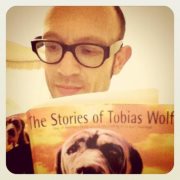 Steve Wasserman is a psychotherapist. He co-runs the only Short Story Book Club in the UK with Megg Hewlett; teaches Mindfulness Based Writing and Cognitive Therapy Courses alongside creative writers, and facilitates therapeutic reading groups. He also co-records a podcast called Read Me Something You Love with you (yes YOU, eyeballing-the-screen-at-this-very-moment. THRESHOLD reader, so get in touch on Twitter or readmesomethingyoulove AT gmail.com).
Steve Wasserman is a psychotherapist. He co-runs the only Short Story Book Club in the UK with Megg Hewlett; teaches Mindfulness Based Writing and Cognitive Therapy Courses alongside creative writers, and facilitates therapeutic reading groups. He also co-records a podcast called Read Me Something You Love with you (yes YOU, eyeballing-the-screen-at-this-very-moment. THRESHOLD reader, so get in touch on Twitter or readmesomethingyoulove AT gmail.com).


Hi John. I think you’re right, it does “fit” our technology. I struggle to read anything on a computer screen that is longer than the screen itself (scrolling lethargy), and Flash gives you everything in the frame. However, if there’s something I really want to read (like that Kevin Barry story that’s just gone up on Thresholds), I’ll download the PDF onto an ebook, or Instapaper it for a read on the tube to work on my phone. For some reason, I don’t seem to want to do this with Flash Fiction. Happy to take a glance at it, share the nugget of prose, in passing, but not so keen to really “engage” with it.
Perhaps (coming to your point, Vanessa) this is because at some level I must be assuming that most flash *is* inherently draft-y. If you’re churning out a piece a day, say, how can it not be?
I have read your last sentence three or four times. Yes! Wise words. Technology I think is slowly addling my capacity to do this and it concerns me. It brings the riches of world to me, but it also brings the too-muchness of the world, and I respond to that too-muchness with anxiety and distrust.
I think I need to read less, but to read better. But that probably means I’m not going to read much that is *published* almost exclusively online (Flash) because I have no way of knowing what sort of editorial process went into getting it up there.
Yup. Understood – and the issue I think is not uncommon. Rather similar to engaging with poetry, isn’t it? You have to slow down and let the words do their work. Does the internet help or hinder? In the end, it will sort itself out, I reckon – there is a lot of superb stuff out there – just look at Tania Hershman’s website for the names of many great places with rigorous editorial policies. And enjoy!
And, second reply – there are writers who are perfectly capable of creating a good flash in a few minutes. I know lots of them. But personally, I think it might be a mistake to think the results can’t sometimes be sharpened after a little settling time! (From experience…)
Interesting. What do I think, as a writer of this thing some people call flash, and others call poems, prose poems, short short stories… the names, all written in a line almost add up to the word-count of a flash, or al… oh shut up V.
But whereas, sure, you can pen a little piece in a flash, (as in short while) – it can take a rather long time to revise the perfectly serviceable rock into the diamond you want it to be. Some are happy to publish the first draft, edited for typos. Hands up – as the writer of lots of little bits that have found their way out there.
And that is half the problem. There are plenty of places that will publish those tidied first drafts. There is another skill the writers can learn, I believe – and that is the skill of revising whilst retaining the quality, clarity, of the original, by cutting away the modifying ivy growing through the tree.
Whether the reader is prepared to give it the time necessary to engage with the piece, and wonder, and think… is another matter.
Hello. It occurred to me that maybe a good analogy for flash fiction might be aphorism. In that case, the problem of creating deeper engagement with the reader might be solved by thematic arrangement of the pieces… And I still can’t clearly differentiate flash fiction from prose poetry.
I like the idea of flash fiction as a shareable nugget of prose. It fits our technology and way of life. I look forward to interesting developments.
What’s not to love about Damien Hirst? The guy deserves everything he’s got and everything he gets. To argue is the point.
No I love conceptual art, Amanda.
I’ve just decided (like everyone else at the moment, you’ve probably noticed; God aren’t I susceptible?) to be peevish about Damien Hirst.
It is a peevishness begotten almost entirely by toxic envy, which is often how peevishness pans out.
Blimey Steve, you convinced me. Then I remembered that I like reading it, well some of it. The best writers manage to place the stepping stones far enough apart to make the reader become truly involved in the creative process.
What was that sneaky stab at Damien Hirst? Is conceptual art also a problem?
Hi Erinna. Thanks for this great response. I use a lot of literature (excerpts of novels, poems, short stories, some Flash Fiction) in the therapeutic reading groups that I run, and I would wholeheartedly agree with you that people get more from any piece of literature when read aloud and then given the opportunity to digest the piece through informal discussion (it’s something I’m also trying to do with RMSYL).
For me, what is key is giving a short-enough “chunk” of the piece to the listener before the chat commences. Too much, and they lose a sense of the “whole”; too little, and they have nothing to sink their teeth into. So for this reason, I can see how Flash would work well when read aloud. But then, I so do a few paragraphs from a short story. And of course poems. The best discussions I’ve had in my groups are generally around poems which facilitate imaginative leaps in the reader like no other, I think. Flash is neither fish nor fowl. We commit to the narrative, but then aren’t “fed” by the narrative. We are tantalised by its poetry, but there often isn’t enough of that.
Apart from poems, the reason why I probably use longer prose, served up in sections, is that after reading and discussing our “chunk”, we then move into the next part of the story enriched, and reading more deeply.
Real life is almost entirely about ” snatches of the people and situations”. And it goes in a flash, too. I suppose when I turn to the written word, I want something “other” than, something dare I even say, transcendent to the snatches of real and unreal that Flash offers.
Hmm – interesting! I’ve been writing and reading a lot of flash lately (including a piece in Jawbreakers) and what I’ve found is that people feel really engaged with it when it is read out to them – much more so than a short story or a poem. Admittedly I don’t read people many poems! I was trying to work this out when I read this article. I think that it is because flash ask the reader to participate in the written word more fully than the more contained short story or poem. It asks people to create in their imaginations what will happen, or what has happened – I don’t think poems do this, do they? Not in the same way anyway. Some flash is really poetry, but if it’s good, if it has the narrative and linearity of a story then it isn’t poetry it’s something else entirely. Writers like it because it’s similar to hearing a snatch of conversation or watching a scene play out and then making up the rest in your head, which is what we do anyway. Readers like it because this is what real life is, you only get snatches of the people and situations around you and you have to guess at the rest. Life is about constantly using your imagination and flash gets you to think about this process. I don’t believe it’s like speed dating at all it’s more like thinking about what your ex is doing now, and who with, and if they would be happier with you. Of course it does also stop you writing your novel.